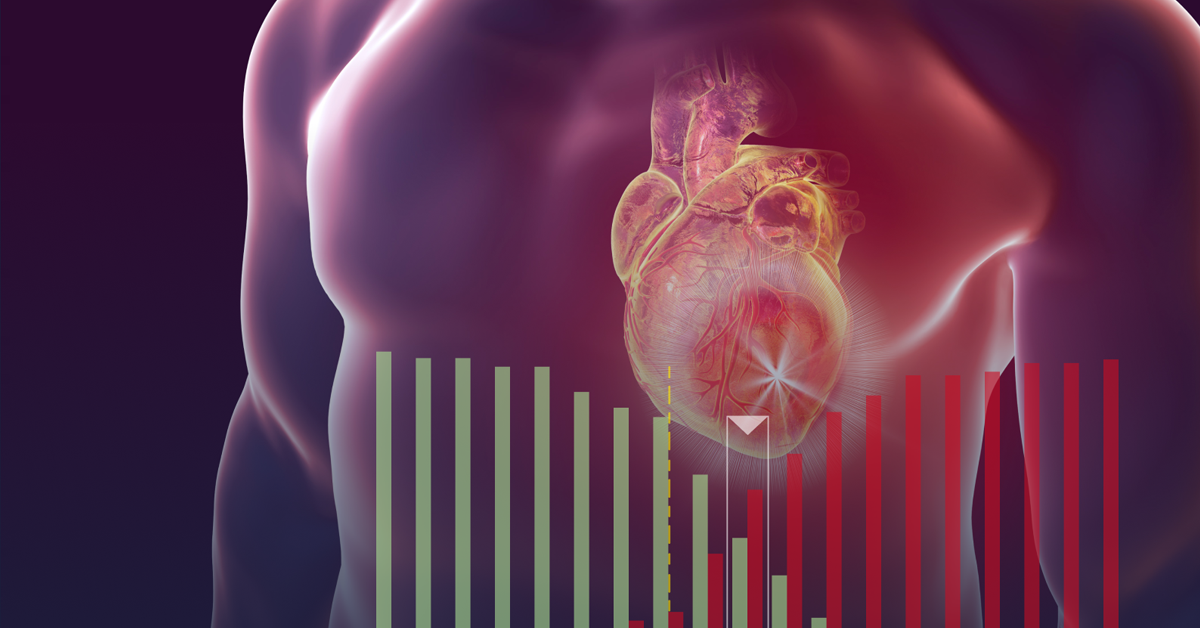
Ultromics Introduces AI-Powered Probability Scoring on EchoGo® Heart Failure for Enhanced HFpEF Diagnosis
- | By Ultromics
- Press Release, partnerships
EchoGo® Heart Failure now delivers a continuous probability score reflecting the likelihood of HFpEF to support clinical decision-making.
OXFORD, England, Mar 28, 2025. Ultromics, a pioneer in AI-driven cardiology solutions, has unveiled the latest enhancement to EchoGo® Heart Failure: the introduction of a first-of-its-kind AI-powered probability scoring system for assessing heart failure with preserved ejection fraction (HFpEF). This innovation marks a groundbreaking development the use of deep learning to improve the detection of this often underrecognized condition.
EchoGo® Heart Failure remains the first and only AI platform capable of identifying HFpEF from a routine echocardiogram. The new probability scoring system builds upon this unique capability by generating a continuous score of the likelihood of disease, which provides a more nuanced diagnostic assessment of HFpEF, minimizing uncertainty and enhancing clinical decision-making. Additionally, the platform continues to support the detection of other critical heart conditions, such as cardiac amyloidosis, helping clinicians in the early identification of underlying causes of heart failure.
“The introduction of the probability scoring feature into the EchoGo® Heart Failure platform represents a pivotal step forward in heart failure detection and patient risk stratification,” said Ross Upton, PhD, Founder, CEO, and Chief Scientific Officer of Ultromics. “By delivering a precise probability score, EchoGo® Heart Failure enables clinicians to assess a patient’s likelihood of disease, allowing for more confident decision-making”.
Real-World Impact and Clinical Validation
The updated EchoGo® Heart Failure platform has been rigorously validated in a study at Beth Israel Deaconess Medical Center (BIDMC), a Harvard Medical School teaching hospital, and other leading clinical sites. This study focused on real-world, complex cases, including patients with multiple overlapping comorbidities, such as a combination of hypertension and diabetes, where traditional diagnostic models may struggle to distinguish between cases and controls effectively.
Results revealed that the AI-powered probability scoring system provides substantial added information, accurately aiding in the diagnosis of HFpEF, the likelihood of disease, and patient outcomes. The platform demonstrated higher sensitivity in detecting HFpEF and improved differentiation between HFpEF and clinically complex controls at risk or with possible—but not confirmed—HFpEF, compared to standard clinical practice.1
The new probability scoring feature also associates positively to patient outcomes: patients flagged by EchoGo® Heart Failure as high-risk showed a two-fold increase in the likelihood of heart failure hospitalizations and mortality, highlighting the potential of AI to inform timely interventions that could improve patient management.1
Using all available clinical information with EchoGo® Heart Failure led to a 33% improvement in correctly managing patients with HFpEF, compared to relying solely on the H2FPEF score.1
When compared to standard clinical practice, like H2FPEF and HFA-PEFF, EchoGo® Heart Failure demonstrated fewer indeterminate classifications, reducing diagnostic uncertainty—a common issue with traditional models—leading to confident diagnoses in over 80% of patients.1
“By integrating this advanced AI-powered tool into routine echocardiograms, we are enhancing our ability to detect HFpEF with greater certainty," said Jordan Strom, lead study author and cardiologist at Beth Israel Deaconess Medical Center, a teaching hospital of Harvard Medical School. “This is especially important in a disease as heterogeneous as HFpEF. Our work suggests that the combination of clinical scores and AI may improve certainty about the diagnosis of HFpEF and suggests a possible path forward for the integration of AI into clinical practice. This approach can ultimately help ensure timely recognition and treatment of HFpEF and facilitate clinical workflows.”
Introducing the Probability Score Enhancement
HFpEF remains one of the most challenging forms of heart failure to diagnose partly due to the complex interplay between multiple clinical and echocardiographic parameters. Accurate detection requires the careful integration of these variables, which can be discordant or indeterminate in some patients. As a result, HFpEF is often underdiagnosed or misdiagnosed, delaying appropriate care.
The advanced capabilities of EchoGo® Heart Failure are designed to tackle these challenges. Leveraging deep learning algorithms, the platform generates a continuous risk score, offering greater granularity than binary outputs. This continuous scoring system allows for a more nuanced assessment of HFpEF likelihood, minimizing diagnostic uncertainty and enhancing clinical decision-making.

New features of EchoGo® Heart Failure include:
- Probability-Based Scoring: The AI evaluates sequences of echocardiogram frames and assigns scores reflecting patterns consistent with HFpEF, providing valuable insights for clinical decision-making.
- Uncertainty Estimates: Each score is accompanied by an uncertainty estimate, ensuring that uncertain predictions are flagged for further review, reducing false positives or negatives.
- Comparative Analysis Visualization: Clinicians can compare a patient’s results against a large reference population of HFpEF and non-HFpEF cases, supporting objective and informed assessments.
EchoGo® Heart Failure with probability scoring is FDA Device Breakthrough cleared and is now available to healthcare professionals as part of the platform. For further information or to request a demonstration, visit ultromics.com.
.
References:
- Akerman AP, Al-Roub N, Angell-James C, et al.. (2025). External validation of artificial intelligence for detection of heart failure with preserved ejection fraction. Nature Communications, 16, 2915. https://doi.org/10.1038/s41467-025-58283-7.
Curious about upcoming research and innovation?
Sign up to hear about the latest news.

